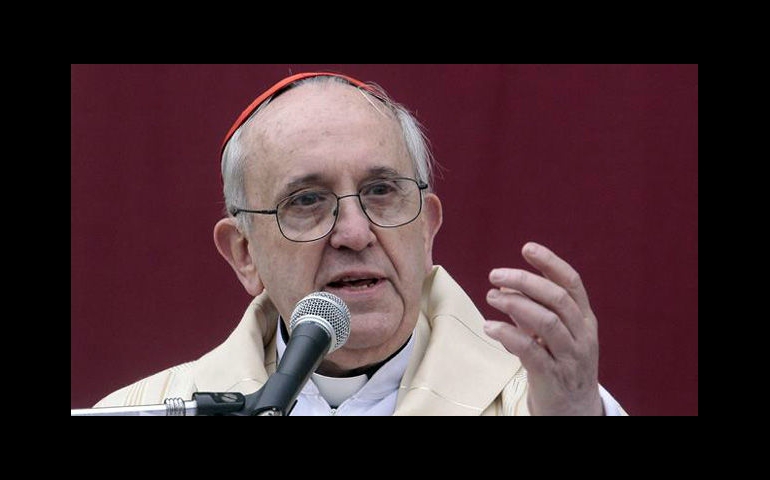After an hour from when white smoke billowed out from the sistine chapel’s chimney, Cardinal Jean-Louis Tauran, the top-ranking cardinal deacon, came out onto the balcony of St. Peter’s Basilica and confirmed the election with the phrase “Habemus papam” (We have a pope).
This phrase was then followed with the announcement that Cardinal Jorge Mario Bergoglio of Buenos Aires will be the 266th successor of St Peter and take the name Pope Francis I.
Cardinal Bergoglio, who has been elected as the Vicar of Christ, has had a growing reputation as a very spiritual man with a talent for pastoral leadership serving in a region with the largest number of the world’s Catholics.
Since 1998, he has been archbishop of Buenos Aires, where his style is low-key and close to the people.
He rides the bus, visits the poor, lives in a simple apartment and cooks his own meals. To many in Buenos Aires, he is known simply as “Father Jorge.”
He also has created new parishes, restructured the administrative offices, led pro-life initiatives and started new pastoral programs, such as a commission for divorcees. He co-presided over the 2001 Synod of Bishops and was elected to the synod council, so he is well-known to the world’s bishops.
As cardinal, he has also written books on spirituality and meditation and has been outspoken against abortion and same-sex marriages.
In 2010, when Argentina became the first Latin American country to legalize same-sex marriage, Cardinal Bergoglio encouraged clergy across the country to tell Catholics to protest against the legislation because, if enacted, it could “seriously injure the family,” he said.
He also said adoption by same-sex couples would result in “depriving (children) of the human growth that God wanted them given by a father and a mother.”
In 2006, he criticized an Argentine proposal to legalize abortion under certain circumstances as part of a wide-ranging legal reform. He accused the government of lacking respect for the values held by the majority of Argentines and of trying to convince the Catholic Church “to waver in our defense of the dignity of the person.”
His role often forces him to speak publicly about the economic, social and political problems facing his country. His homilies and speeches are filled with references to the fact that all people are brothers and sisters and that the church and the country need to do what they can to make sure that everyone feels welcome, respected and cared for.
While not overtly political, Cardinal Bergoglio has not tried to hide the political and social impact of the Gospel message, particularly in a country still recovering from a serious economic crisis.
Since becoming archbishop of Buenos Aires in 1998, Cardinal Bergoglio has created new parishes, restructured the administrative offices, taken personal care of the seminary and started new pastoral projects, such as the commission for divorcees. He has mediated in almost all social or political conflicts in the city; the newly ordained priests are described as “the Bergoglio generation”; and no political or social figure misses requesting a private encounter with him.
Jorge Bergoglio was born in Buenos Aires, Argentina’s capital city, Dec. 17, 1936.
He studied and received a master’s degree in chemistry at the University of Buenos Aires, but later decided to become a Jesuit priest and studied at the Jesuit seminary of Villa Devoto.
He studied liberal arts in Santiago, Chile, and in 1960 earned a degree in philosophy from the Catholic University of Buenos Aires. Between 1964 and 1965 he was a teacher of literature and psychology at Inmaculada high school in the province of Santa Fe, and in 1966 he taught the same courses at the prestigious Colegio del Salvador in Buenos Aires.
In 1967, he returned to his theological studies and was ordained a priest Dec. 13, 1969. After his perpetual profession as a Jesuit in 1973, he became master of novices at the Seminary of Villa Barilari in San Miguel. Later that same year, he was elected superior of the Jesuit province of Argentina.
In 1980, he returned to San Miguel as a teacher at the Jesuit school, a job rarely taken by a former provincial superior. In May 1992 he was appointed auxiliary bishop of Buenos Aires. He was one of three auxiliaries and he kept a low profile, spending most of his time caring for the Catholic university, counseling priests and preaching and hearing confessions.
On June 3, 1997, he was named coadjutor archbishop. He was installed as the new archbishop of Buenos Aires Feb. 28, 1998. – CNS
